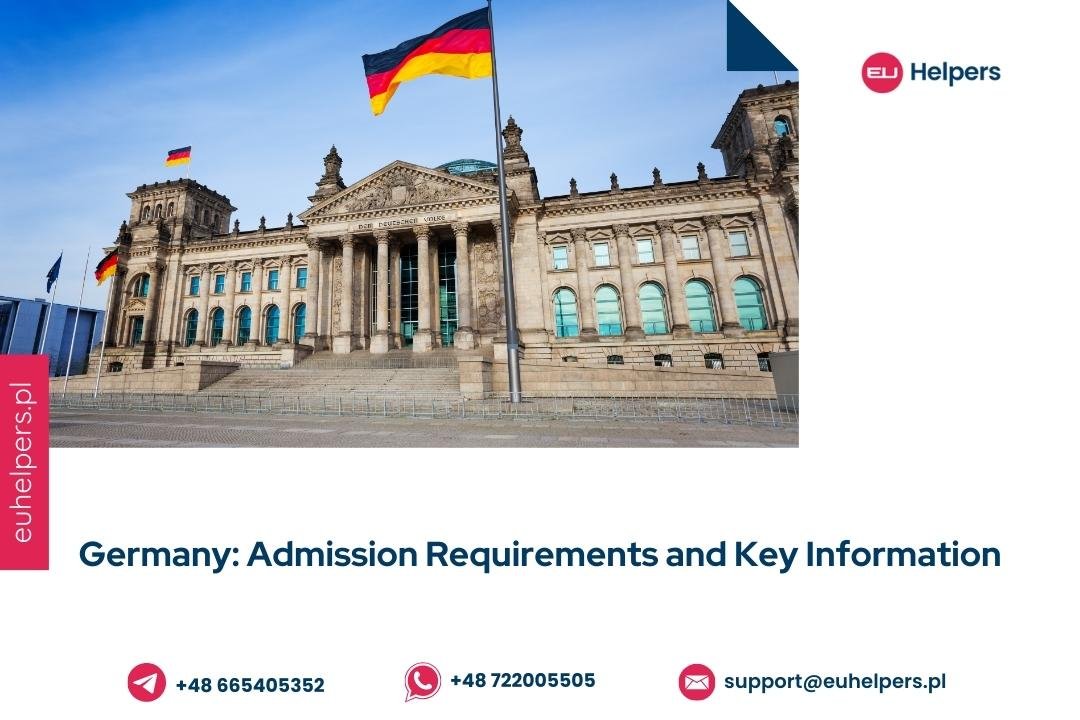Germany is known for offering high-quality education, and many international students take advantage of its public higher education institutions, where they can study for free—except in the states of Bavaria and Baden-Württemberg. In these regions, students are required to pay a semester fee of around 300 to 600 euros per year.
Moreover, Germany allows international students to work up to 20 hours a week during term time, with no restrictions during the holidays, providing a great opportunity to gain experience and support living costs.
Language Requirements
To study at a German university, international students must meet language proficiency requirements. A C1 level of German is typically needed for university programs, along with a B2 level of English. For those applying to preparatory courses (Studienkolleg), a B1 or B2 level of German is required.
Admission to Bachelor's Degree Programs
For students who have completed their secondary education, the typical route to a bachelor’s degree in Germany involves enrolling in a preparatory course (Studienkolleg), which helps students adjust to the German education system. If an applicant has already studied at a higher education institution in their home country for at least one year, they may be eligible to apply directly to a German university for a bachelor's program in a related field.
Most universities do not require entrance exams, and instead, they base their admissions on a complete set of documents, which may include a competition of grades in some cases.
Required Documents for Bachelor's Admission:
1. Certificate: The applicant’s school-leaving certificate with a certified translation.
2. Language Proficiency: Proof of language proficiency in German (C1 level) and English (B2 level).
3. Motivation Letter: A personal statement outlining the applicant's goals and reasons for studying in Germany.
4. Curriculum Vitae (CV): A detailed resume.
5. Letters of Recommendation: References from teachers or professionals supporting the application.
Financial Proof
To obtain a student visa, applicants must also provide evidence of financial means to cover living expenses for the duration of their studies. This is typically done by showing a bank statement with at least 11,904 euros available for the year.
Admission to Master's Degree Programs
For students with a completed bachelor's degree, admission to a master's program in Germany is possible in the same or a related field. The application process requires similar documentation, with additional emphasis on the applicant’s academic qualifications and work experience.
Required Documents for Master's Admission:
1. Bachelor's Degree: A diploma or transcript of grades.
2. Language Proficiency: Proof of German (TestDaF certificate) or English language proficiency.
3. Motivation Letter: A statement detailing why the applicant is pursuing the program.
4. CV: A professional resume.
5. Letters of Recommendation: Academic or professional references.
6. Additional Documents: Depending on the program, universities may request a portfolio, research projects, or details of professional experience.
Application Process and Deadlines
Most universities in Germany accept applications online through the Uni Assist portal, though some universities may have their own application systems. Deadlines vary by university, but generally:
- Winter Semester: Applications must be submitted by mid-July.
- Summer Semester: The deadline is mid-January.
Since some universities may have different deadlines, it is advisable to check individual university websites for the most accurate and up-to-date information.
Germany offers international students an affordable and high-quality education system with a range of opportunities for both undergraduate and graduate studies. By meeting the necessary language requirements, submitting the correct documents, and proving financial security, students can enjoy a world-class education while experiencing life in one of Europe's most vibrant and student-friendly countries.

